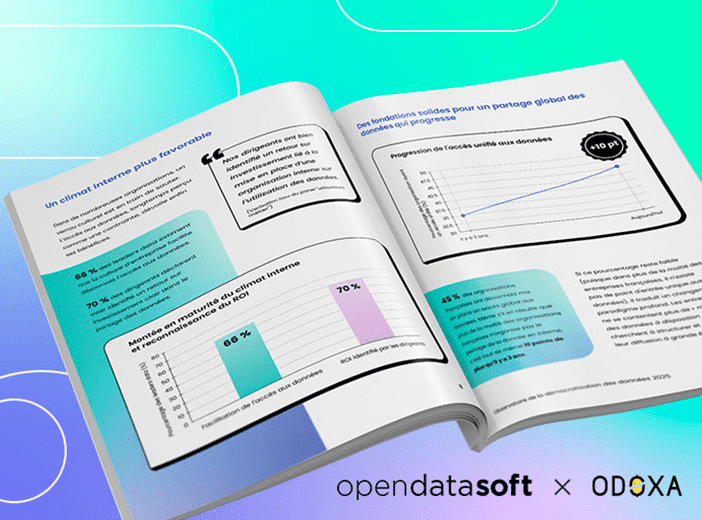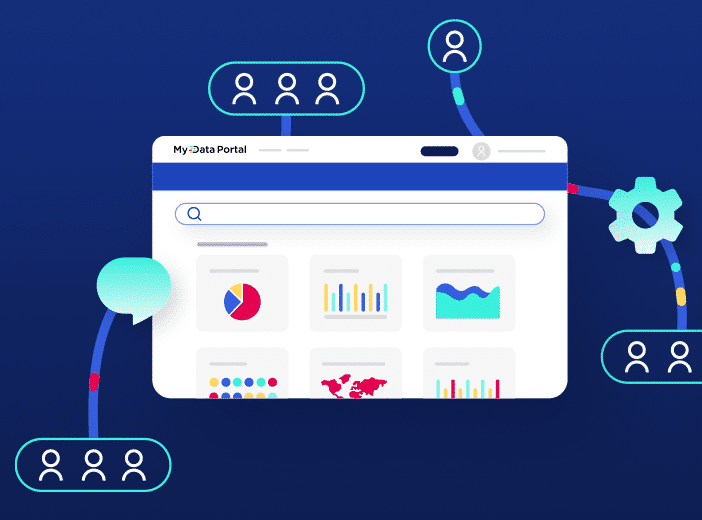Event Recap: ODiScussions London
On May 23, 2019, the latest edition of our ODiScussions event series took place at the Museum of London Docklands. For those of you who were not able to make it, this blogpost outlines the main takeaways from the event.

On May 23, 2019, the latest edition of our ODiScussions event series took place at the Museum of London Docklands. Organized in partnership with the Open Data Institute, the afternoon of presentations, discussions and networking sessions explored recent developments in data sharing practices. The event, attended by over 40 people, brought together practitioners from various industries and geographical areas to discuss their experiences with data sharing. For those of you who were not able to make it, this blogpost outlines the main takeaways from the event.
Open Data and City Management: Best Practices
The event kicked off with a lunch buffet, which provided both speakers and attendees with an excellent opportunity to mix and mingle ahead of the afternoon discussions.
The first presentation addressed the use of data to enhance transparency and evidence-based policy design at the city level. Marius Jennings from the Bristol City Council started off the session by discussing how the Council uses data to engage citizens and work towards a more sustainable city. Steve Crawshaw, Air Quality Project Manager for the Bristol City Council, contributed a more detailed overview of how Bristol monitors air quality across the city using a public data portal.
Later in the afternoon, Annaig Denis, in charge of the development of digital uses and services for France’s Loire-Atlantique Department, offered a view of public sector data sharing practices from across the Channel. Annaig presented the region’s collaborative approach to data sharing across administrative levels. The City of Nantes, the Loire-Atlantique Department and the Pays de la Loire region present a unique case in which all three administrative bodies feed the same database into their respective open data portals. Through the use of subdomains and strong data governance practices, these public sector actors have managed to produce of family of data portals with the purpose of keeping citizens updated with as much relevant public information as possible.
Recent Trends: Open Data in the Private Sector
Like previous editions of ODiScussions, the London one was an excellent platform to discuss new trends in private sector data sharing. A panel discussion involving companies Euler Hermes and Vallourec commented on the motivations and objectives of private sector actors to open up their data. Both companies launched data portals in Spring 2019. While Vallourec’s initiative is a direct response to changing regulatory requirements and social expectations around the publication of Corporate Social Responsibility data, Euler Hermes sees data sharing as unavoidable in the future and as an opportunity to become a trendsetter in the present. Vallourec’s datasets include valuable information on gender diversity, environmental and social indicators whereas Euler Hermes provides universal access to some of the company’s data on international trade. Euler Hermes worked closely with representatives from the academic and economic research community to determine the data that would be most relevant to them and provide opportunities for stronger credit insurance analysis.
Transport and Mobility: Data Sharing for Greener and Healthier Urban Spaces
Data sharing is particularly pressing and relevant is the transport and mobility sector. Rikesh Shah, the Head of Commercial Innovation for Transport for London (TfL), presented on data sharing initiatives at the organization. TfL started experimenting with data as early as 2007 to analyze the over 30 million journeys taken daily within the TfL network. Rikesh Shah’s presentation provided the audience with a comprehensive overview of the main stages through which this large transport company went in order to harness its data and make it available for reuse by over 15,000 developers.
Unique Case Studies: Data Sharing in the Media and Health Industries
While we heard from representatives of industries where data sharing is gaining more and more ground, ODiScussions London also presented an opportunity to hear about some more unique case studies. Laurent Kalfala, Journalist and Innovation Project Manager, at Agence France-Presse (AFP), talked about sharing data internally with the agency’s in-house journalists. While professionals in the media industry are seemingly less exposed to data, AFP recognized that journalists often deal with recurrent events and that quick access to data regarding those events is essential for accurate writing. AFP saw data sharing as an opportunity to revolutionize the way in which journalists work with data by providing them with an easy-to-use and visually attractive internal data sharing portal.
In a very different example, Richard Dudley from the National Institute for Health Research described how data sharing enabled his organization to improve performance. The NIHR is not a brick-and-mortar but rather a virtual structure. It includes a number of institutions across the country that comprise the United Kingdom’s largest funder of health and care research. The organization naturally deals with a large portfolio and launching a data sharing portal made it possible to store all data in one place, providing a single source of up-to-date, accurate and reusable data. This initiative not only supports a commitment to transparency but also streamlines access to information for researchers and policy makers, encouraging informed decisions to improve patients’ lives. Stakeholders can use and analyze data to identify gaps and priorities in the funding landscape.
Closing Remarks - Data Sharing and Future Opportunities
As the afternoon drew to an end, Orsola de Marco from the Open Data Institute, which kindly partnered with us for this event, spoke of the importance for data to be reused. Opening and sharing data is a first step in the process of capitalizing on data, but the true value lies in the products and services that can be created through its reuse. Drawing from a vast array of data reuse examples, Orsola certainly gave us food for thought on how each industry can think about making its data relevant for developers and innovators. As TfL’s Rikesh Shah put it, current data sharing practices “only touch a fragment of what we can do”. ODiScussions London brought us a step closer to understanding all the value data sharing can bring and we are already looking forward to our next event to continue the discussion!



